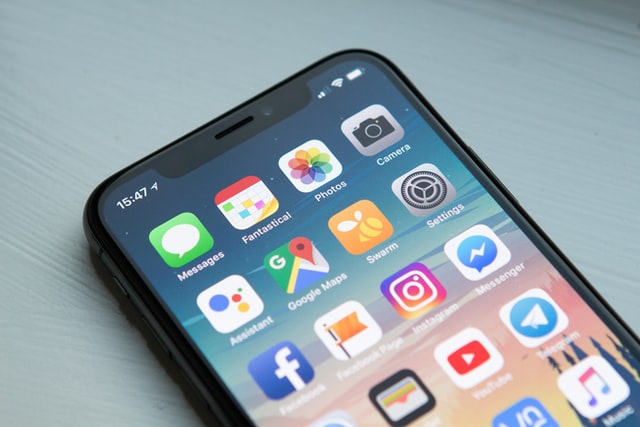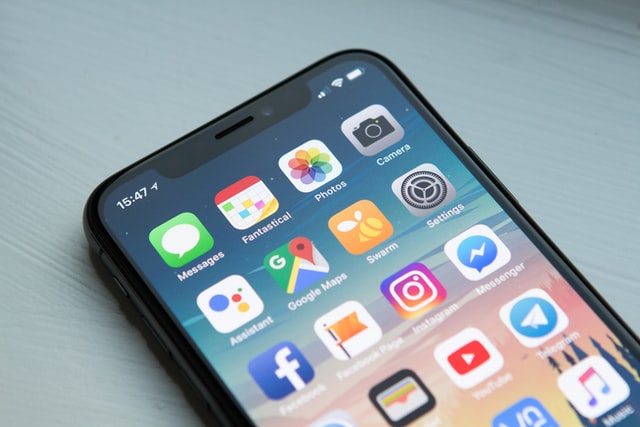Can Apps be Hacked (Is it Possible? How)


We all use different kinds of apps on our smartphones that help us accomplish tasks in a very easy and swift manner. Basically, apps are simplified versions of the most popular websites. For instance, the Facebook app or Instagram app is a much simplified yet powerful version of their respective website. Plus, we can’t imagine our life without them. But has it ever occurred to you that the apps you trust the most can also be used against you? This then brings another question to our mind, “Can apps be hacked?”
Let’s find out!
Can Apps be Hacked?
Yes, apps can be easily hacked by hackers using the reverse engineering method. So, whether you are using an Android or iOS device, you are prone to cyber security attacks, which can be executed with the help of the apps that you trust the most.
Now that we have got an answer to this most searched question, we shall move forward to the next segment, where I will give you a brief idea of how apps can be hacked by hackers.
How can an App be Hacked?
So, to start with, Android apps are the most common targets of hackers because of the open-ended OS, while the apps on iOS devices are comparatively safer. The reason? Well, when an android app is created, it is compiled and compressed in a format known as APK.
Now, as they are just a compiled and compressed version of the app, they can be easily decompiled using the reverse engineering method (a method through which one tries to understand how a piece of software works), thus creating an opportunity for a hacker to see the code and modify it.
According to Checkpoint – a cyber security company, “Android apps that already exist on your android phone can be used to steal your data.” Moreover, a software library that is built into several apps can be a major threat to security. One of the most popular examples is Google which created this type of library intending to create a shortcut for the apps to interconnect with its Google Play app.
Which are the apps that are prone to hacking?
Almost every app that is available on the app market is prone to cyber-attacks. While there is always a debate going on between Android and iOS users, I still believe that regardless of the OS platform, a hacker can plant malicious code inside any app and reap the important data.
Moreover, the apps like Instagram, WhatsApp, Facebook, Twitter, Banking apps, Camera, and Notes, can also be tweaked by a hacker using the reverse engineering method.
Below is a chart that shows the devices and apps that are most at risk of being hacked.

What happens if apps are hacked by the attacker?
If any app gets hacked by the hacker, it will be doomsday for a user as it will allow a hacker to breach into the system and make your Android or iOS device vulnerable. Consider it more like spyware, which will allow a hacker to gain control over your system by logging your every move, including your keystrokes.
Additionally, this can also lead to privacy breaches such as the stealing of private data like photos, videos, documents, and most importantly, your bank account credentials. And not to forget, some hackers inject codes inside apps in such a way that it can start infecting other users on the contact list.
For example, a hacker injects malicious code inside a WhatsApp message. Now, when he sends that particular message to other users, it will spread like a virus as soon as the other user opens up the message, thus resulting in a successful hacking.
Tips to avoid your apps from getting hacked.
Prevent Reverse engineering:
If you are a developer, you already know that it is not an impossible task for a hacker to implement reverse engineering on an app and take away data and source code.
Therefore, to prevent this from happening, you can change the names of the important classes and methods in the pre-processor. Another solution is to disassemble the symbol table after the app has been created.
Moreover, app companies should also look out for tools and techniques that would help developers in detecting security loopholes and safeguard their applications against malicious codes.
Token-based authentication should be used:
Many mobile applications do not use proper authentication methods, which causes data leaks. That’s where token-based authentication comes into the picture. A token is a bit-sized data that doesn’t have much importance by itself, but with a precise tokenization system, it becomes a crucial part of protecting your mobile app.
Moreover, a token-based authentication makes sure that every API request to the server is verified for authenticity and then only responds to the request.
Use Android Keychain or iCloud Keychain:
A Keychain is a type of secure container on a mobile device that stores all of your passwords, username, and logins for apps. Therefore, it is highly recommended that developers should leverage this feature of the OS for data storage rather than storing it themselves via p-list files or NSUsersDefaults.
Additionally, it will free the user from entering the login details every time the application is opened.
Encrypt the data while saving it into the local database:
This is another powerful practice where plain text or data is translated into an encrypted format known as “Ciphertext.” And to decrypt it again, a user needs to enter the password or secret key, thus making it the most effective and secure way to store your data.
Use fingerprint lock instead of username and password:
Nowadays, many phones are equipped with a fingerprint sensor that allows a user to lock his or her phone in a more secure way. In the same way, many apps can also be secured using the same method.
Plus, according to Apple, the chances of a fingerprint match are 1 in 50000, whereas the four-digit passcode is 1 in 10000.
Enable push notification:
I am sure, that you must have received a text message or a push notification from an app like Amazon when you try to login into the account using a different gadget.
Well, this is a security feature that is built into the app that notifies a user whenever a breach is identified. Although there are only a few apps that are equipped with this feature.
Always install SSL certificate:
Lastly, if you are a developer, use an SSL certificate on the server, which will provide maximum security and prevent the intruder from sneaking and interfering while data is being transferred between an app and its server.
Final Remarks on “Can apps be hacked?”
So, after a long discussion, it is very much clear that an app, whether it be on android or on iOS, can be hacked easily by using the reverse engineering method and sabotaging the codes.
Therefore, I strictly recommend installing apps from official app stores and not from any third-party websites offering APK files.






User forum
1 messages